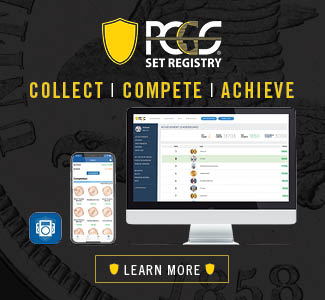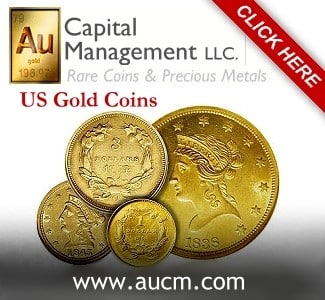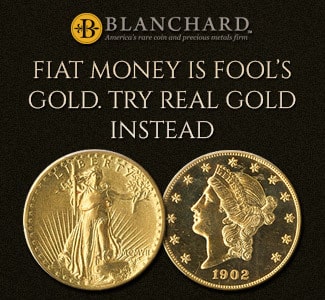By David Provost for CoinWeek …..
Author’s Note: My intention for this series of “stories” is to present lesser-known information about the US commemorative coins series derived from my original research in the records of Congress and/or the reports and correspondence of the individual coin sponsors. The information presented will not simply be a reworking of the information presented in the standard reference works on the series. I sincerely hope you enjoy the backstories presented in this series and I welcome your comments and suggestions.
Part I of this article on Los Angeles Olympics Coins can be found here. Part II can be found here.
* * *
The original bill calling for commemorative coins to support the 1984 Los Angeles Olympic Games was introduced by Senator Alan Cranston (D-CA) on May 20, 1981. S.1230 called for a massive 29-coin program that was to include multiple gold, silver, and copper-nickel coins. The bill specified that the coin program was to be marketed on behalf of the Los Angeles Olympics Organizing Committee (LAOOC) by one or more private marketing companies.
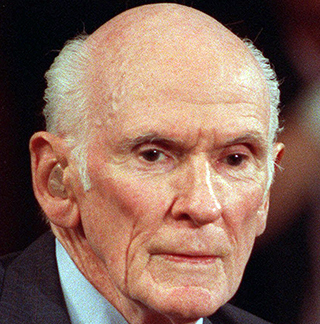
While the bill met little opposition in the Senate, it found in the House a staunch opponent in the name of Frank Annunzio (D-IL11), Chairman of the Subcommittee on Consumer Affairs and Coinage under the House Committee on Banking, Finance and Urban Affairs. Annunzio was vehemently opposed to the use of private marketers and the potential profits they would gain from selling US legal tender coinage.
The Senate moved forward on S.1230, holding hearings on it in July 1981. With no unmanageable concerns arising during the hearings, the Senate considered and passed S.1230 on December 10, 1981. Annunzio, however, was not inclined to quickly acquiesce to the Senate’s wishes.
The House subcommittee took up the Olympic coin bills on April 6, 1982, in the first of five hearing sessions. By this time, multiple bills in addition to S.1230 had been introduced and were subject to review and discussion. Notable among them was HR.6058, a bill introduced on April 1, 1982 by Representative Fernand Joseph St. Germain (D-RI), an original supporter of S.1230. The bill called for a 17-coin program vs. S.1230’s original proposal of 29 coins. Another was HR.6069, a bill introduced by Annunzio that called for a single silver dollar.
Prior to the hearings, Annunzio had been subject to growing criticism within Congress and in the general media for his aggressive opposition to the scope and marketing provisions of S.1230. His strong opposition would not be quieted by such criticism, however.
House Hearing: Session 1
As the House hearings began, Annunzio wasted no time addressing the disapproving comments directed at him:
“I intend to have full hearings to permit everyone an opportunity to present their views on this issue. No one who wants to testify will be denied the opportunity to testify. There have been allegations in the press that I have refused people the right to testify. This is absolutely not true. These will be open hearings.”[1]
He was true to his word. Over the course of five sessions, more than two dozen witnesses provided live testimony, and over 200 statements, letters, and telegrams were entered into the official record of the proceedings.
In all, the record of the House hearings extends to 582 pages!
Live testimony during the first session focused on representatives of the General Accounting Office (GAO). J. Dexter Peach, Director of the Energy and Minerals Division of the GAO, was the first witness called to testify. Peach provided testimony regarding the possible financial risks for the Federal Government for three of the proposed coin programs: the original S.1230, St. Germain’s HR.6058, and Annunzio’s HR.6069.
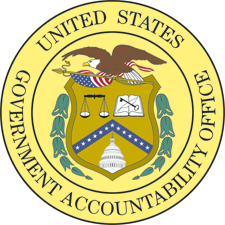 Peach recognized the intentions of the LAOOC to make the 1984 Los Angeles Olympics the first Games in history to be staged without financial support from the government, but noted that “a coinage program, while not requiring a direct Federal appropriation from tax revenues, may result in indirect Federal financing of the games through foregone Federal revenues and assumption by the Federal Government of financial risk and associated costs.”[2]
Peach recognized the intentions of the LAOOC to make the 1984 Los Angeles Olympics the first Games in history to be staged without financial support from the government, but noted that “a coinage program, while not requiring a direct Federal appropriation from tax revenues, may result in indirect Federal financing of the games through foregone Federal revenues and assumption by the Federal Government of financial risk and associated costs.”[2]
Article Continues on the Following Page(s) ……….


